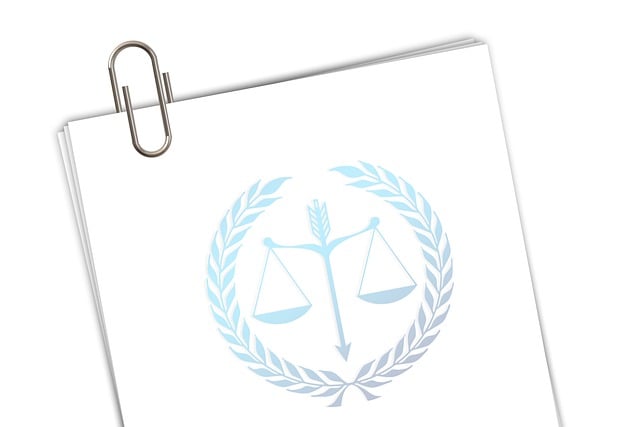Environmental Law Compliance (ELC) in healthcare is a critical, often overlooked area with significant consequences for non-compliance. Healthcare facilities generate diverse waste streams, including hazardous chemicals, requiring careful management under complex local, state, and federal regulations. ELC experts identify risks, implement preventive strategies, and stay updated on changing laws to protect public health, prevent fines, promote sustainability, and ensure future-readiness. Key focus areas include medical waste management, hazardous chemical handling, and best practices implementation. Proactive compliance measures, risk assessments, internal controls, staff training, technology integration, and specialized legal guidance are essential solutions for navigating ELC issues in the dynamic healthcare landscape.
In the intricate web of healthcare operations, staying ahead of environmental law compliance issues and solutions is paramount. As regulations continue to evolve, healthcare organizations face unique challenges in balancing patient care with ecological stewardship. This article delves into the critical aspects of environmental law compliance, exploring common hurdles like waste management and energy efficiency. We offer strategic insights and highlight the pivotal role of experts in navigating this complex landscape, ensuring sustainable practices within healthcare facilities.
- Understanding Environmental Law Compliance in Healthcare
- Common Challenges Faced by Healthcare Organizations
- Strategies and Solutions for Effective Compliance Management
- The Role of Experts in Navigating Complex Regulatory Landscape
Understanding Environmental Law Compliance in Healthcare
In the healthcare industry, Environmental Law Compliance is a critical aspect often overlooked but with significant consequences. Healthcare facilities generate a diverse range of waste, from medical equipment to hazardous chemicals used in research and treatment processes. Navigating environmental regulations ensures that these waste streams are managed safely and responsibly, protecting both public health and the environment. Understanding and adhering to Environmental Law Compliance issues and solutions is essential for healthcare organizations to avoid high-stakes cases and maintain their reputation across the country.
Compliance experts play a pivotal role in identifying potential risks associated with environmental law violations. They implement strategies to prevent and mitigate these issues, ensuring that facilities comply with local, state, and federal regulations. By staying abreast of changing laws and best practices, these experts help healthcare institutions avoid costly fines, damage to their infrastructure, and even jury trials. Through proactive measures, they foster a culture of environmental stewardship, contributing to the overall sustainability of the industry and its future-readiness in a rapidly evolving legal landscape.
Common Challenges Faced by Healthcare Organizations
Healthcare organizations often navigate a complex landscape when it comes to compliance with various laws and regulations. One of the primary challenges they face is keeping up with evolving environmental law compliance issues, which can significantly impact their operations and financial health. These include regulations related to waste management, pollution control, and sustainable practices. For instance, proper disposal of hazardous medical waste or implementation of energy-efficient systems can be complex and costly, requiring specialized knowledge and resources.
Moreover, the realm of white collar defense and economic crimes is another area that poses difficulties for healthcare entities. As these organizations handle vast amounts of sensitive data and financial transactions, they become potential targets for fraud, embezzlement, or other illegal activities. While general criminal defense strategies may not always be applicable, proactive measures such as robust internal audits, employee training on ethics, and advanced cybersecurity systems can help mitigate risks associated with white-collar crimes, ensuring compliance with relevant laws and protecting the organization’s reputation.
Strategies and Solutions for Effective Compliance Management
Healthcare organizations face complex Environmental Law Compliance Issues and Solutions, requiring dedicated experts to navigate regulatory landscapes. An effective compliance management strategy involves a multifaceted approach. First, conducting thorough risk assessments identifies potential non-compliance areas. This proactive step allows for the development of tailored solutions, ensuring adherence to environmental regulations.
Implementing robust internal controls, regular staff training, and clear communication channels are vital. Additionally, leveraging technology for efficient data management and tracking can significantly reduce errors and omissions. For his clients, a specialized general criminal defense team is invaluable in mitigating high-stakes cases arising from compliance breaches, providing strategic guidance to ensure business continuity.
The Role of Experts in Navigating Complex Regulatory Landscape
In today’s complex regulatory environment, healthcare compliance experts play a pivotal role in guiding respective businesses through intricate environmental law compliance issues and solutions. With ever-changing laws and stringent enforcement, these professionals ensure that institutions remain in full adherence to regulations, avoiding costly fines and legal troubles. Their expertise is particularly vital in the healthcare sector, where non-compliance can lead to severe consequences, including complete dismissal of all charges, impacting not only the business but also its reputation.
By leveraging their deep understanding of environmental laws, these experts develop robust strategies that encompass risk assessment, policy implementation, and ongoing monitoring. They assist in navigating labyrinthine regulatory requirements, ensuring that every aspect of operations complies with relevant standards. Moreover, healthcare compliance experts are well-versed in white-collar defense strategies, providing valuable insights to mitigate potential legal risks and fostering a culture of ethical conduct within the respective business.
Healthcare organizations, faced with a complex web of regulations, can find clarity and confidence through proactive compliance management. By understanding environmental law compliance issues and implementing effective strategies, they can steer clear of costly penalties and legal troubles. The role of healthcare compliance experts is invaluable in navigating this intricate landscape, offering specialized knowledge to ensure adherence to laws and promote sustainable practices. With their guidance, healthcare providers can focus on patient care while maintaining a strong environmental stewardship commitment.






